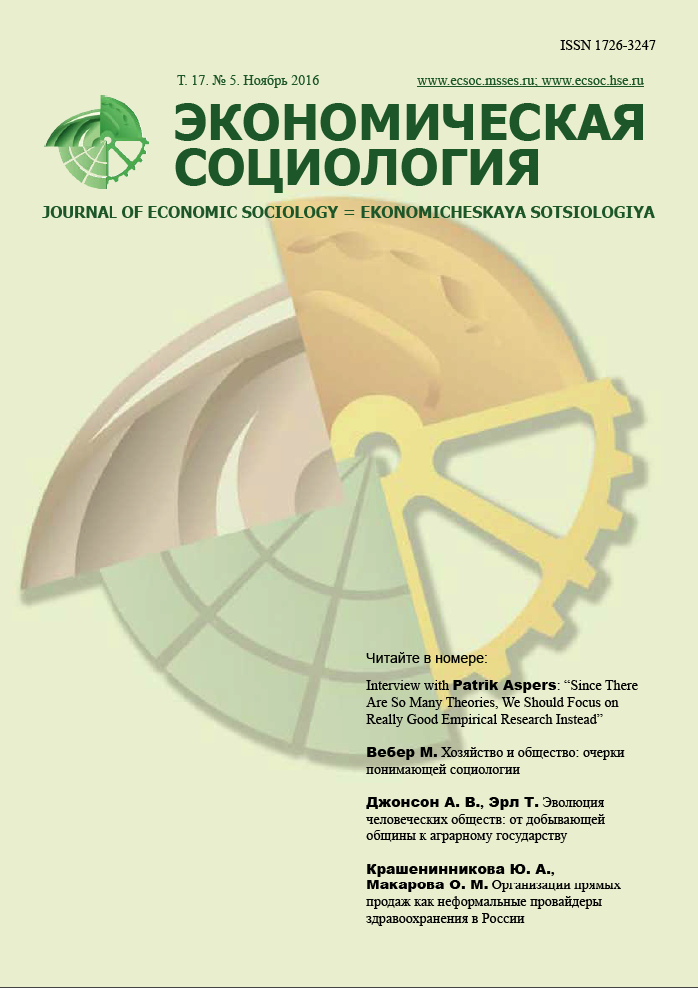Direct Selling Organizations as Informal Healthcare Providers in Russia
Abstract
This article analyzes how and why direct selling organizations (DSOs), or network companies, or multi-level marketing (MLM) companies can be counted among informal healthcare providers. The paper is based on the results of a qualitative field study conducted in 2013 in the Perm region as part of a larger project on the description of informal healthcare in Russia. The authors used semi-structured interviews with salespeople and observations of their workplaces, as well as interviews with doctors and local residents.
Although network marketing of health products in Russia is not widely practiced, it demonstrates vitality in adverse conditions. Unlike many other countries, Russia’s main players are domestic companies that have successfully mastered imported direct selling technologies. The research reveals that these DSOs mimic healthcare institutions by not only medicalizing their products but also providing participants a diagnosis, medical advice, complementary and alternative medicine services, as well as education and promotion of healthy lifestyles. The salespeople’s self-presentation is ambiguous: They criticize official healthcare but demonstrate loyalty to the conventional biomedical model at the same time.
This medical mimicry can be considered the side effect of marketing efforts to stimulate sales, the result of the DSOs’ policy to attract salespeople, the manifestation of mimetic isomorphism, and the result of the organizational specificity of DSOs, that is, expansion in the private sphere of members’ lives, including healthcare. In our opinion, none of these reasons is an acceptable explanation, and further work in this direction is necessary to understand informal healthcare markets.













